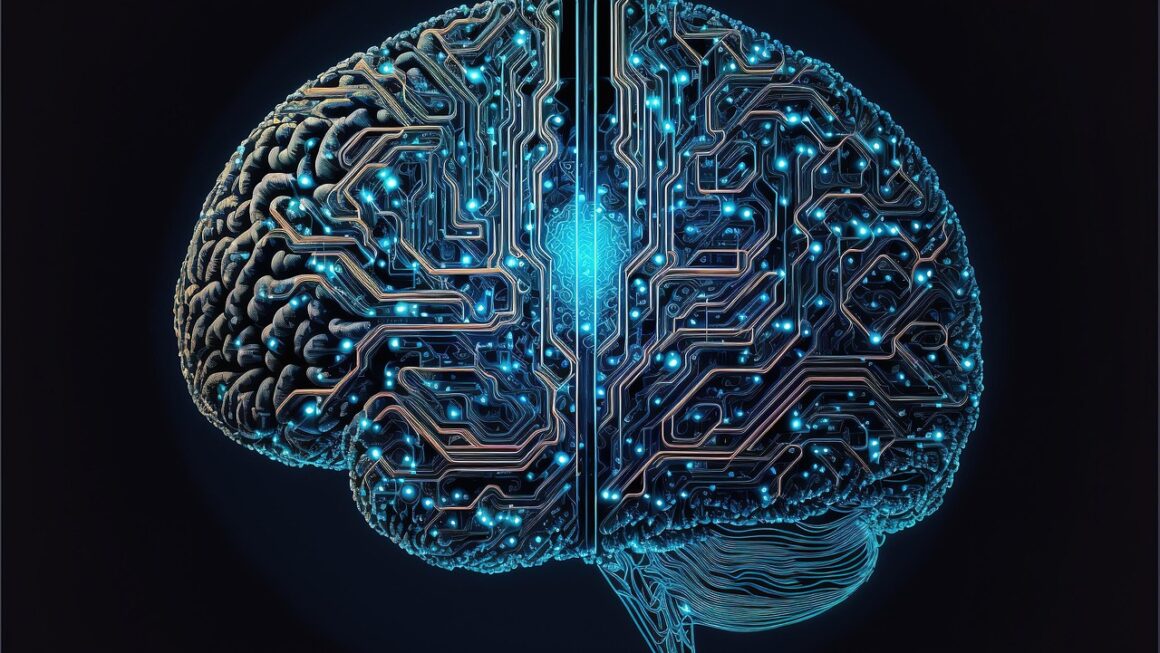The healthcare industry is undergoing a dramatic transformation, and at the forefront of this revolution is artificial intelligence (AI). From diagnosing diseases with greater accuracy to personalizing treatment plans and streamlining administrative tasks, AI is rapidly reshaping how healthcare is delivered and experienced. This blog post will explore the various applications of AI in healthcare, offering insights into its current impact and future potential, demonstrating how it is poised to improve patient outcomes and transform the medical landscape.
AI-Powered Diagnostics and Imaging
Enhancing Accuracy and Speed
AI’s ability to analyze vast datasets of medical images and patient data is revolutionizing diagnostics. AI algorithms can detect subtle anomalies and patterns that might be missed by human doctors, leading to earlier and more accurate diagnoses. This is particularly beneficial in fields like radiology, where AI can assist in interpreting X-rays, CT scans, and MRIs.
- Example: Google’s DeepMind has developed AI algorithms that can detect breast cancer with greater accuracy than radiologists in some cases.
- Benefits:
Reduced diagnostic errors
Faster diagnosis leading to quicker treatment
Improved patient outcomes
Advancements in Medical Imaging
AI is not only improving the accuracy of image interpretation but also enhancing the quality of medical images themselves. AI-powered image reconstruction techniques can reduce noise and artifacts, leading to clearer and more detailed images. This allows for better visualization of anatomical structures and pathological conditions.
- Example: AI algorithms are being used to enhance MRI images, making it easier to identify tumors and other abnormalities.
- Actionable Takeaway: Healthcare providers should explore incorporating AI-powered diagnostic tools to improve the accuracy and efficiency of their diagnostic processes.
Personalized Treatment Plans
Tailoring Healthcare to the Individual
One of the most promising applications of AI in healthcare is its ability to personalize treatment plans based on individual patient characteristics. AI algorithms can analyze a patient’s genetic information, medical history, lifestyle factors, and other relevant data to identify the most effective treatment options.
- Example: AI is being used to predict which patients are most likely to respond to certain cancer treatments, allowing doctors to tailor chemotherapy regimens to individual needs.
- Benefits:
More effective treatments
Reduced side effects
Improved patient satisfaction
Predictive Analytics in Healthcare
AI can also be used to predict a patient’s risk of developing certain diseases or experiencing adverse events. This allows for proactive interventions and preventive measures to be taken, improving patient outcomes and reducing healthcare costs.
- Example: AI is being used to predict which patients are at risk of developing sepsis, allowing for early treatment and preventing life-threatening complications.
- Actionable Takeaway: Utilize AI tools to create personalized treatment plans and leverage predictive analytics for preventative care and proactive interventions, optimizing patient outcomes.
AI-Driven Drug Discovery and Development
Accelerating the Drug Discovery Process
Drug discovery and development is a lengthy and expensive process, often taking years and costing billions of dollars. AI is accelerating this process by identifying potential drug candidates, predicting their efficacy, and optimizing clinical trial design.
- Example: AI algorithms are being used to analyze vast databases of molecular structures and biological data to identify promising drug targets for various diseases.
- Benefits:
Faster drug development
Reduced development costs
Increased success rates
Improving Clinical Trial Efficiency
AI can also improve the efficiency of clinical trials by identifying suitable patients, optimizing trial protocols, and analyzing trial data. This can lead to faster and more accurate results, accelerating the approval of new drugs and therapies.
- Example: AI is being used to identify patients who are most likely to benefit from a new drug, improving the efficiency and success rate of clinical trials.
- Actionable Takeaway: Implement AI-driven tools to streamline the drug discovery process and enhance clinical trial efficiency, ultimately speeding up the delivery of new medications to patients.
Streamlining Healthcare Administration
Automating Repetitive Tasks
AI can automate many of the repetitive and time-consuming administrative tasks in healthcare, freeing up staff to focus on more important patient care activities. This includes tasks such as appointment scheduling, billing, and insurance claims processing.
- Example: AI-powered chatbots are being used to answer patient questions, schedule appointments, and provide basic medical information, reducing the workload on healthcare staff.
- Benefits:
Reduced administrative costs
Improved efficiency
Enhanced patient satisfaction
Enhancing Data Management
AI can also improve data management in healthcare by organizing and analyzing large volumes of patient data. This can lead to better insights into patient populations, improved resource allocation, and more effective healthcare delivery.
- Example: AI is being used to analyze electronic health records (EHRs) to identify patterns and trends that can improve patient care and reduce costs.
- Actionable Takeaway: Embrace AI-powered solutions to automate administrative tasks and enhance data management, optimizing operational efficiency and freeing up resources for patient care.
Addressing Challenges and Ethical Considerations
Data Privacy and Security
The use of AI in healthcare raises important ethical considerations, particularly regarding data privacy and security. It is crucial to ensure that patient data is protected and used responsibly. Strong data governance policies and robust security measures are essential to prevent data breaches and misuse.
- Challenge: Protecting sensitive patient data from unauthorized access.
- Solution: Implementing strong encryption and access control measures.
Bias in AI Algorithms
AI algorithms can be biased if they are trained on biased data. This can lead to unfair or discriminatory outcomes. It is important to carefully evaluate the data used to train AI algorithms and to address any biases that may be present.
- Challenge: Ensuring fairness and equity in AI-driven healthcare decisions.
- Solution: Using diverse datasets and regularly auditing AI algorithms for bias.
Transparency and Explainability
It is important that AI algorithms are transparent and explainable, so that healthcare professionals can understand how they work and trust their decisions. This requires developing AI models that are interpretable and providing clear explanations of their reasoning.
- Challenge: Building trust in AI-driven healthcare decisions.
- Solution: Developing transparent and explainable AI models.
- Actionable Takeaway: Prioritize ethical considerations such as data privacy, bias mitigation, and transparency when implementing AI solutions in healthcare.
Conclusion
AI is transforming the healthcare industry in profound ways, offering the potential to improve patient outcomes, reduce costs, and enhance the overall quality of care. From AI-powered diagnostics and personalized treatment plans to AI-driven drug discovery and streamlined administration, the applications of AI in healthcare are vast and growing. While challenges and ethical considerations must be addressed, the benefits of AI in healthcare are undeniable. As AI technology continues to evolve, its role in healthcare will only become more significant, shaping the future of medicine and improving the lives of patients around the world. Healthcare providers, researchers, and policymakers should collaborate to harness the full potential of AI while ensuring that it is used responsibly and ethically.
For more details, visit Wikipedia.
Read our previous post: Beyond Bitcoin: Cryptos Quiet Revolution In Emerging Markets




